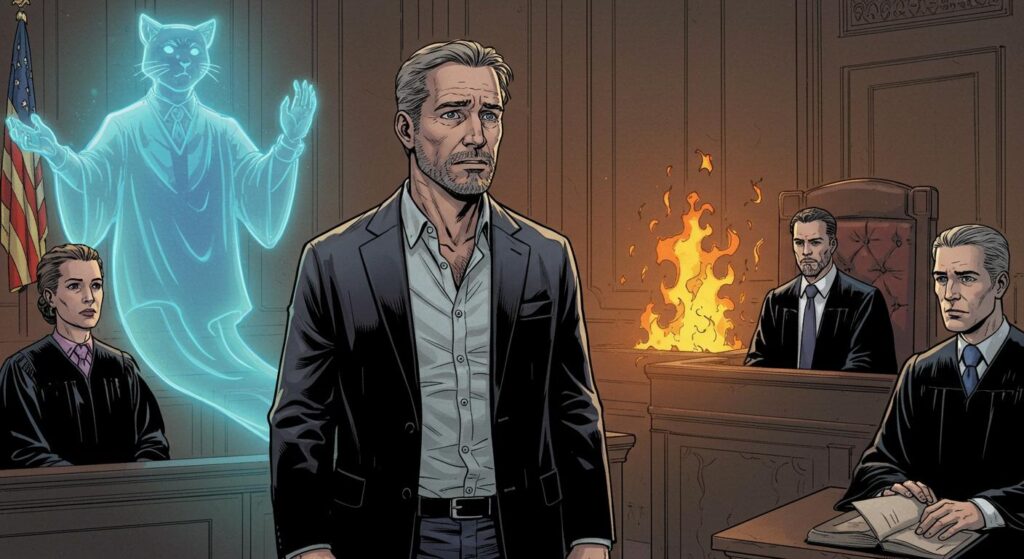A Classic Case of Tit for Tat—with a Legal Twist
Some stories from the court system feel like fever dreams cooked up after a little too much late-night infomercial watching, and yet, here we are. According to The Drive’s recent dive into a particularly mercantile episode in Lima, Ohio: a customer lost her car but promptly gained something arguably stranger—the dealership’s very identity.
How a Car Repossession Became a Name Snatch
If you thought car dealership headaches only ever led to paperwork and waiting in line, allow me to introduce you to Tiah McCreary’s 2024 saga. In February of last year, McCreary strolled into Taylor Kia of Lima, selected a 2022 Kia K5, and signed the usual stack of paperwork—much of which, according to Court News Ohio, included an agreement to settle disputes via binding arbitration. The dealership’s finance manager arranged a preliminary loan approval through Global Lending Services, allowing her to roll off the lot in her K5.
However, the celebration was short-lived. Court records cited by both The Drive and Fortune note that the lender later determined they didn’t have sufficient information to finalize the deal. A month after purchase, while McCreary was at work, the dealership repossessed the car—a development about as welcome as a check engine light on the drive home.
Now, here’s where an ordinary bad day takes a sharp turn into the unexpected. Digging through her legal options, McCreary discovered—thanks to her research and records reviewed by Court News Ohio—that Taylor Automotive Group (which operates Taylor Kia of Lima) had failed to submit a renewal application for the dealership’s trade name with the Ohio Secretary of State. As a result, the state canceled the registration. Sensing an opportunity, McCreary registered the “Taylor Kia of Lima” name herself. Revenge, it seems, sometimes wears the scent of damp legal stationery rather than burning rubber.
According to details highlighted by Fortune, McCreary followed up her registration by sending a cease and desist letter to the dealership, instructing them to stop using the trade name unless they had her explicit consent.
The Legal Ping-Pong: Arbitration, Appeals, and a Name in the Balance
The drama didn’t stop there. Documents reviewed by Court News Ohio reveal that, in June 2024, McCreary filed a complaint in Allen County Common Pleas Court, alleging fraud, unjust enrichment, and violations of the Consumer Sales Practices Act. She also sought an injunction, aiming to prevent Taylor Cadillac (the parent company) from using “Taylor Kia of Lima” without her say-so. The dealership, undoubtedly surprised to find themselves on the opposite end of a paperwork power move, argued that McCreary’s arbitration agreement required the whole matter, including the naming rights, to be settled privately.
Here’s where the courts weighed in: The common pleas court initially sided with the dealership—sending the dispute to arbitration and largely closing the door on a public airing of legal grievances. However, McCreary appealed. As outlined in the Court News Ohio report, the Third District Court of Appeals examined whether the arbitration clause, which covered all disputes “arising out of or in any way related to this consumer transaction,” also applied to the rights to the dealership’s own name.
The outlet documents that the appeals court determined the name dispute was not sufficiently connected to the original vehicle sale. Quoting Judge John Willamowski’s opinion, the court concluded McCreary did not agree to arbitrate away her rights to the trade name—a point echoed by Fortune, which summarizes that this was “a separate matter that could be pursued independently of the other claims in the complaint that address the consumer transaction at issue.”
Road & Track, referencing both court documents and the appellate decision, also notes that the case is now headed back to common pleas court, and the question of who ultimately controls “Taylor Kia of Lima”—for now, at least—remains unresolved. As The Drive drily observes, “the dealer has McCreary’s car, McCreary has the dealer’s name, and Ohio courts have yet to determine how it shakes out.” It’s a near perfect symmetry—reminiscent, perhaps, of a reversi board at halftime.
Bureaucratic Oversight or Accidental Genius?
One can’t help but appreciate the knotted logic. The dealership, concerned about exposure with a shaky loan, watched its car go out the door and swiftly brought it back in. Meanwhile, McCreary, scanning state records, found an abandoned asset and snatched it up. If nothing else, the standoff asks: How many companies are just a missed renewal away from losing their public-facing identity? Should businesses check their state paperwork with as much vigilance as they do credit reports?
It calls to mind a broader question: Is this episode a justified instance of “fighting fire with fire,” or simply a curious example of what happens when bureaucracy collides with creative persistence? Not every car buyer scours the Secretary of State’s registration portal after a sour deal—but maybe some more will, after this.
The Drive, clearly still bewildered, muses that they can’t recall another case where a customer sought compensation by commandeering the business’s very name. There’s something oddly satisfying about it—a subtle, non-theatrical sort of drama that unfolds quietly in legal briefs and not, for once, in the used car lot.
The Allure of Loopholes (and Revenge by Paperwork)
Ultimately, this saga showcases the peculiar power of overlooked details—a kind of poetic justice measured not in horsepower or dollars, but in signature blocks and state seals. Whether it becomes an often-cited precedent or just an urban legend whispered around DMV counters remains to be seen.
And one can’t help but wonder: Is the greater risk for businesses these days a missed payment…or a missed box checked in the depths of state bureaucracy? I’ll be watching the outcome, because somewhere, an archivist or a bored consumer might just be plotting their next legal checkmate.







